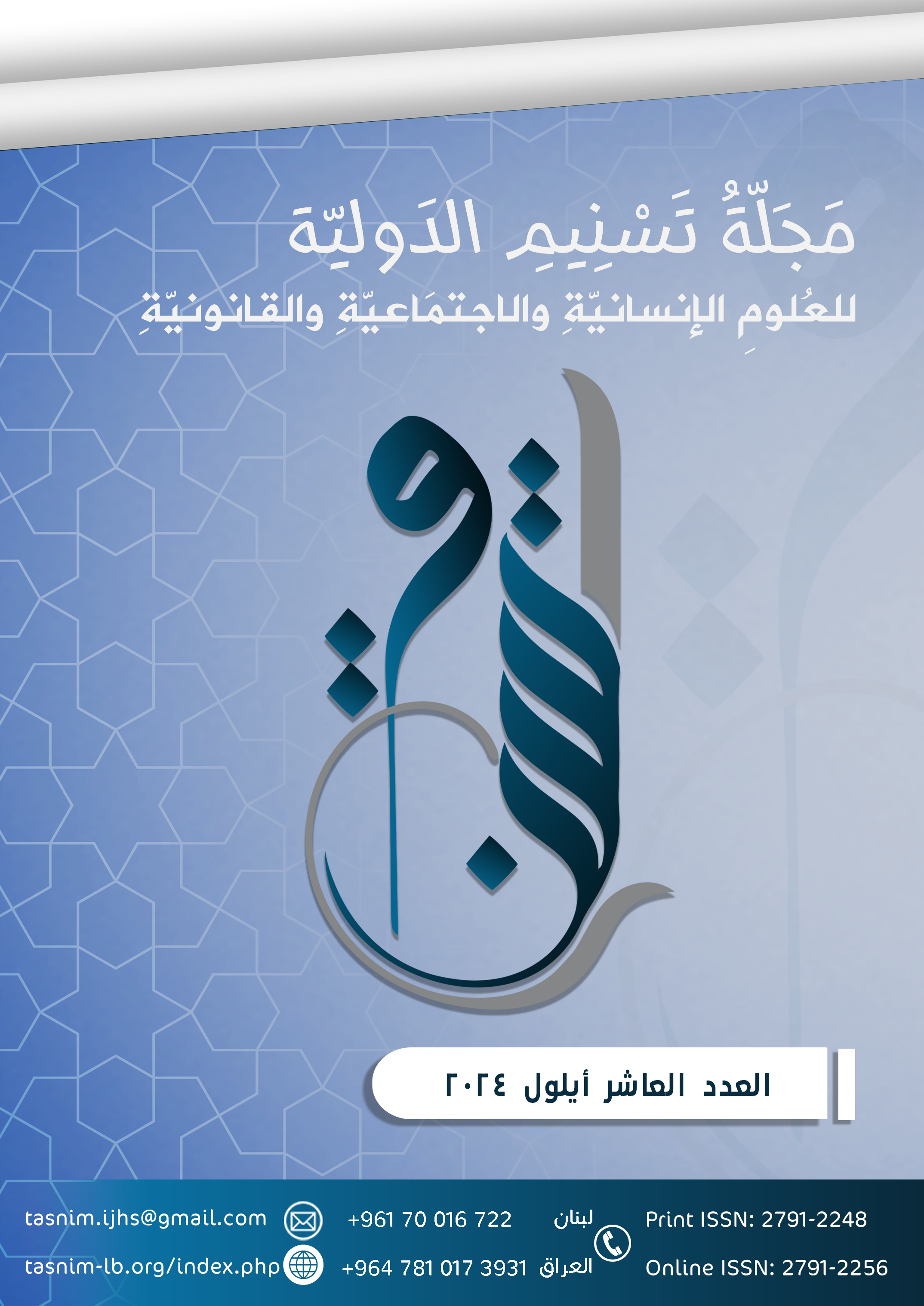الحوار الديني ودوره في السلم الاجتماعي في ضوء القرآن الكريم والسنة النبوية
DOI:
https://doi.org/10.56924/tasnim.10.2024/17Keywords:
الحوار, السلم الاجتماعي, القرآن الكريم, السنة النبويةAbstract
Praise be to Allah، Lord of the Worlds، and prayers and peace be upon the most honorable of prophets and messengers، Abu al-Qasim Muhammad، and upon his pure and immaculate family: The issue of religions and sects has played a pivotal and decisive role throughout history in building and integrating human societies. The roots of man's desire and inclination to worship the Creator go back to the truth of the innate nature inherent in the nature of this being، which made him worthy of the blessing of guidance that God Almighty bestowed upon the children of Adam through the heavenly laws that provide man with all the components of a sublime and ideal life. Therefore، the chains of prophecy continued over time، and the messengers came one after the other، in harmony with the maturity and perfection of humanity، until God Almighty sent His chosen Prophet (may God bless him and his family) as the Seal of the Prophets، and God Almighty legislated the religion of Islam as the essence of all the religions and laws that preceded it. Most of the heavenly religions and laws have faced great challenges throughout their history; As different groups and sects emerged within the framework of each one of them، the sects and religions diversified with the diversity of religions and laws، and a state of religious and sectarian pluralism emerged. The cognitive concept of pluralism in the religious and sectarian fields indicates that religions and sects، despite their diversity، guide their followers to one goal، and take different directions from each other to reach one goal. Naturally، this pluralism is not without common areas and dividing gaps at the same time، between the multiple readings and diverse efforts within the framework of one religion، or what is called (sectarianism). As for the common denominators and points of agreement، focusing on them leads to rapprochement between those sects، and thus: achieving unity، and in contrast، emphasizing the aspects of difference produces estrangement and discord، and then division and conflict. Here comes the role of the Islamic nation to decide its position and choose what it chooses from these two opposing paths، and adopt the method that leads it in one of the two directions. If it chooses the method of extremism، blind fanaticism، and hateful sectarianism، its word will be divided، its ranks will be scattered، and its forces will collapse. But if it focuses on the points of common agreement and brings its viewpoints closer and become harmonious، its unity will be reunited، its entity will be unified، and it will set out to restore its past glories. In this research، we shed light on one of the most influential approaches to sectarian rapprochement and unity of the Islamic nation، and the rejection of division and blind sectarianism، which is the approach of religious dialogue that our religion emphasizes through many texts، including the Almighty’s saying: {Those who listen to speech and follow the best of it - those are the ones whom Allah has guided، and those are the ones with understanding.} (Surat Az-Zumar، verse: 18) Therefore، the research came to include three demands، a conclusion، and research sources. The first demand was entitled the concept of religious dialogue، in which I explained the definition of dialogue and related terms، and the difference between them، and I also clarified the purpose of dialogue and its benefits. The second requirement was titled “Religious Dialogue and Its Importance in Social Peace in Light of the Holy Quran.” We relied on Quranic verses that emphasize the importance of dialogue in achieving social coexistence. The third requirement was titled “Religious Dialogue and Its Importance in Social Peace in Light of the Prophetic Sunnah.” We shed light on a number of hadiths narrated from the Prophet and his family (peace be upon them) in this regard.
Downloads

Downloads
Published
How to Cite
Issue
Section
License
Copyright (c) 2024 Tasnim International Journal for Human, Social and Legal Sciences

This work is licensed under a Creative Commons Attribution-NonCommercial-NoDerivatives 4.0 International License.





